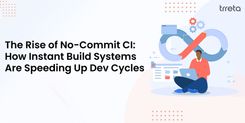Since its inception, PHP has demonstrated remarkable adaptability and longevity. Today, it powers a staggering 79.2% of websites globally, and its continuous evolution ensures it remains a top choice in 2025 for server-side development.
Businesses often turn to PHP frameworks to further streamline and accelerate development processes. These frameworks offer a structured, efficient approach to development that allows for faster, more secure, and scalable solutions.
As a decision-maker looking to streamline your web or app development project and improve the performance of applications, it is crucial to select the right PHP framework for your business.
In this blog post, we'll discuss 10 best PHP frameworks to consider for your development projects in 2025. But first, let’s understand:
Why PHP Frameworks Are Crucial for Effective Development in 2025?
Before proceeding towards the specific frameworks, let's first understand how PHP frameworks are especially important for web and app development in 2025.
- Accelerated Development: PHP frameworks provide pre-built components and tools that streamline the development process and significantly reduce time-to-market.
- Robust Security: Its built-in security features like input validation, output escaping, and encryption mechanisms protect applications from common vulnerabilities, safeguarding sensitive data.
- Scalability and Performance: PHP frameworks, especially Laravel and Symfony, are designed to handle increasing traffic and complexity, making them suitable for both small-scale and enterprise-level applications.
- Maintainable Codebase: Enforcing code standards and best practices, PHP frameworks promote clean, organized, and easily maintainable code, reducing long-term development costs.
- Thriving Community and Ecosystem: PHP’s large and active community offers extensive documentation, tutorials, and open-source libraries, fostering collaboration and knowledge sharing among developers.
Best PHP Frameworks in 2025 (Comparison Table)
10 Most Popular PHP Frameworks for Web Development in 2025.
Having discussed the need for PHP frameworks, let's proceed with discussing the best PHP frameworks to choose for business in 2025.
1. Laravel

Another year is passing, and Laravel remains as the top PHP framework to build those modern, robust applications. Laravel's popularity continues to grow, with download numbers increasing by 15-20% annually. As of 2024, it has been downloaded over 50 million times. Rich ecosystem and powerful tools for elegant syntax have made it a go-to PHP framework choice for web development.
Laravel Main Features
- Eloquent ORM: Helps simplify database interactions and assists developers in writing cleaner code.
- Blade Templating Engine: Simple and powerful syntax used in the creation of views.
- Routing and Middleware: Allows for flexibility in defining custom middleware and routes.
- Built-in Authentication & Security: It includes all the features of user authentication, CSRF protection, and encryption.
- Laravel Ecosystem: Offers tools like Laravel Forge for server management, Envoyer for deployment, and Laravel Mix for asset compilation.
Business Use Cases:
Laravel is generally used for web applications, SaaS platforms, APIs, and e-commerce solutions. If you need a scalable and secure framework, Laravel's feature-rich environment makes it an excellent choice.
2. Symfony

Symfony is considered one of the most powerful frameworks of PHP, ideal for building complex, high-traffic applications. Its enterprise-level features and scalability make it a reliable framework for delivering robust solutions for businesses.
Key Features:
- Modules: With Symfony's modular approach, you can pick and choose the components that best suit your project. This reduces complexity, making development more seamless.
- Customizable and Flexible: Its flexibility makes it a great option for incorporating other technologies and building customized solutions.
- Performance: Designed to be used with heavy-traffic applications and complex business logic.
Business Use Cases:
Symfony is suitable for large enterprise applications, CRM, CMS, and any kind of application with API-driven projects.
3. CodeIgniter

For businesses seeking a lightweight, easy-to-use PHP framework, CodeIgniter may be the best fit. It has minimal configuration setups and offers robust performance, which makes it quite ideal for small projects or quick prototypes.
Key Features:
- Minimal Configuration: Development teams may start coding immediately, spending less time on the setup.
- Small Footprint: It is suited for projects that do not require too much overhead but still demand a solid functional application.
Business Use Cases:
CodeIgniter suits the requirements of quick prototypes, simple websites, and MVPs. Its speed and ease of use make it popular in small to medium-sized businesses.
4. Yii

If you want to create a high-traffic website or application, Yii is the best choice. As one of the oldest PHP frameworks, Yii offers robust AJAX and caching features, making it ideal for businesses prioritizing speed and efficiency.
Key Features
- Gii Code Generator: Yii automatically generates models, controllers, and CRUD operations.
- Caching: Yii offers a variety of caching mechanisms to ensure fast performance in heavy applications.
Business Use Cases:
Yii is great for high-traffic websites, e-commerce applications, and CMS.
5. Phalcon

For businesses seeking speed, there is no faster PHP framework than Phalcon. Inspired by C and C++, this PHP framework offers advanced features like asset management, caching, and a universal autoloader. Its C-based development provides unmatched performance, making it ideal for high-speed web applications.
What makes it stand out:
- Full MVC Framework: It supports the MVC (Model-View-Controller) pattern and hence helps keep code clean, with organized codes.
- In-Memory Data Caching: Built-in caching makes it better when under heavy traffic.
Business Use Cases
Phalcon is meant for real-time applications, high-performance websites, and big enterprise-level applications.
6. Laminas

Laminas, previously known as Zend Framework or ZF, is an enterprise-focused framework offering excellent flexibility and performance. Especially suitable for large, integration-heavy solutions.
Key Features:
- Component-Based Architecture: With Laminsa, you use only the components you need, meaning you have more control over the structure of your project.
- Extensive Security Tools: Built-in features for authentication, authorization, and data encryption.
Use Cases in Businesses:
Laminas is suitable for enterprise-level systems, API development, and code integration.
7. CakePHP

CakePHP, a versatile framework released under the MIT license, has consistently proven its worth since 2005. Despite shifts in the PHP landscape, its 3.7 release has solidified its position in the community. For businesses demanding fast development, CakePHP provides easy tools to speed up things in general. In fact, with its built-in tools and features, you can rapidly deploy your applications.
Major Features:
- Code Generation: Fast out-the-box scaffolding of basic code with command-line tools.
- Built-in Validation & Security: Robust security features ship right out of the box.
Business Use Cases:
CakePHP is great for small to medium applications, internal tools, and MVP development.
8. Slim Framework

Slim Framework is particularly well-suited for building APIs. Its simple and intuitive API development process makes it easy to create powerful web applications. For businesses that are working on microservices or APIs, Slim does really well in serving simple web services.
Top Features:
- Minimalist Architecture: Its characteristic approach to routing and handling HTTP requests makes it perfect for small applications.
- Middleware Support: Supports middleware for easy additional functionality without much hassle.
Business Use Cases
Slim Framework is best suited for building microservices, RESTful APIs, and small web applications.
9. FuelPHP

If flexibility is really critical to your business, then the HMVC structure of FuelPHP will find it perfect for modularity-based projects. With extensive security features like URL filtering and output encoding and its robust authentication framework, it's a top choice for building secure and comprehensive web solutions.
Key Features:
- HMVC Support: Ideal for large, modulated applications.
- Security: Filters are added to guard against common vulnerabilities.
Business Usage Cases:
FuelPHP is aptly tailored for large web applications demanding modularity and scalability.
10. Lumen

Lumen is a micro-framework by Laravel meant for building fast, lightweight APIs and microservices. If performance happens to be your priority, Lumen brings fantastic speed along.
Key Features:
- Optimized for Microservices: Lumen is suited for high-performance backend services.
- Fast and Scalable: High throughput applications with minimal resource usage.
Business Use Cases:
Lumen is the best fit for RESTful APIs, microservices, or backend services for high speed and efficiency.
Choosing the Best PHP Framework for Your Business Needs
Choosing the right PHP web development framework can significantly impact both the development timeline and the long-term success of your application or website. To choose the best framework for your project, consider the following key factors:
-
Project Size and Complexity: For big complex projects like E-commerce, FinTech, and Healthcare, Laravel or Symfony is the best. Simple projects or a quick MVP can easily be managed with CodeIgniter or CakePHP.
-
Expertise of Development Team: If your team is already familiar with Laravel, then it might be better to keep at it. However, if they are more comfortable with a lightweight PHP framework, then Slim or Yii might be the better choice.
-
Long-term Scalability: Choose frameworks like Laravel or Symfony that can adapt to the scale when your business grows.
-
Security and Maintenance: Always choose a framework that offers strong security features. Laravel, Symfony, and Zend Framework are excellent in this regard.
-
Performance Needs: For high-traffic or real-time applications, frameworks like Phalcon or Yii are optimized for performance.
Future Trends in PHP Development and Framework Evolution
As PHP continues to evolve, several trends are shaping the future of web development:
- PHP 8.x and Beyond: Although PHP 7.x still commands a significant market share (over 60%), PHP 8.x, with its innovative JIT compilation, is rapidly emerging. While it currently powers less than 20% of PHP sites, its performance improvements are driving framework adoption and accelerating application development.
- Serverless Architecture: Frameworks like Laravel and Lumen are increasingly supporting serverless architecture, which provides a cost-effective and scalable backend solution.
- Microservices & APIs: Microservices and APIs are on the rise. There are also frameworks out there like Slim and Lumen that optimize such types of architecture.
- AI & PHP: AI and machine learning are influencing PHP development, and future frameworks may integrate more automated tools for error detection, code completion, and security.
Choosing the Best PHP Framework for Your Project
Each of the 10 best PHP frameworks mentioned in this article offers some unique strengths that would fit better with different business requirements. Whether you need a robust solution like Laravel for building SaaS applications, a lightweight framework like Slim for APIs, or a performance-focused framework like Yii, there's a PHP framework to match your project.
At Trreta, we specialize in Laravel and PHP development services. So, whether you are looking to develop an API or a web application, we can guide you in choosing the right PHP framework for web development and help you build a solution that aligns with your business goals. Schedule a call today to get a personalized consultation.
FAQs
1). What is the best PHP framework for startups in 2025?
For startups, Laravel is ideal because of its high-speed development cycle and scalability, as well as an extensive support community.
2). Which PHP framework is best for large-scale enterprise applications?
The best PHP framework for big-enterprise applications is Symfony, again for its versatility, robust security features, and high performance. Its modular architecture and extensive component library make it ideal for building complex, scalable applications.
3). How do PHP frameworks impact the development time of a web project?
PHP frameworks accelerate development by offering reusable components, in-built security options, and standardized code. Additionally, these frameworks often provide tools for automated testing and deployment, further enhancing efficiency and reducing the risk of errors.
4). Are there any PHP frameworks that are better suited for mobile development?
Although PHP frameworks typically focus on development projects related to web-based applications, you can use Laravel or Symfony for API construction, which can eventually be part of your mobile application.
5). What are the key security features to look for in a PHP framework?
SQL injection, XSS, CSRF, and complete authentication/authorization are part of the protection mechanism in some PHP frameworks. Additionally, consider input validation, output escaping, and regular security patches. These features help mitigate common web vulnerabilities and ensure your web app security.




